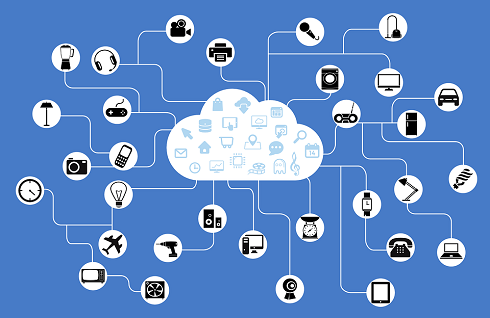Technologies on the Horizon That Will Impact Higher Education
Every year I read the the NMC Horizon Report to see what they predict will be the technologies that will have an impact in higher education. The 2012 report was released jointly by NMC and the EDUCAUSE Learning Initiative.
The report looks at technologies that will have an impact in the next five years (near term, mid-term, and longer term). They also examine "critical challenges" facing education.
The near-term technologies are mobile apps and tablet computing which are changing the nature of computing for end users and developers. The larger suites of integrated software are being replaced by free and cheap apps that focus on doing one or a few things well and integrate with other apps easily. And, though I agree that mobile computing, tablets (iPads etc.) are influencing teaching and learning, I don't see any clear impact yet.
Two technologies that are more mid-term (2 or 3 years from having a major impact) are game-based learning and learning analytics.
"Learning analytics" may have more of an impact on the administration and decision-making levels than directly in the classroom. The term usually refers to both traditional strategies used in student retention, and newer methods of aggregating data from many sources to get a picture of how learning is happening and what is working best. If you have read previous reports, you know that long-term items, like learning analytics, often move closer in time if they grab traction in schools. Learning analytics, for example, seems to have benefited from some funded initiatives in the past few years.
Game-based learning has been on the list for a few years, but I don't feel like it has gotten any closer to making an impact. At one time, virtual worlds was a somewhat related technology, and that has almost dropped off the educational planet the past two years. Both technologies are ones that offer the possibility of using collaboration, problem solving, communication, critical thinking, and digital literacy. But the results have not been all that impressive. Online social games have certainly been big the past few years, but their application or any transference to learning is still lacking.
If you're writing your proposals for grants and conferences, you might want to get a jump on those technologies that are still four or five years out. Two to look into are gesture-based computing and the "Internet of Things."
Gesture-based computing fits right into gaming and mobile devices. Think of Wii games and swiping that smartphone or tablet. The ideas driving its use in education is that it can transcend linguistic and cultural limitations. Watch a two year-old play with an iPad and you realize that not relying on language or any specific language might be a major plus. These devices also encourage interaction and just plain old play as a way to explore and learn. That is certainly true with younger students, but not lost on older and adult learners. Android and Apple smart phones and tablets, the Microsoft Surface, ActivPanel, Nintendo Wii and Microsoft Kinect systems, are all playing with these ideas.

The "Internet of Things" is further out there in years and in my ability to explain exactly what it means, or might one day mean, to education. It is about the evolution of smart objects which are interconnected items in ways that make the line between the physical object and digital information very blurry or invisible.
You should look into IPv6 and how it is used in small devices with unique identifiers. You probably know a bit about RFID devices that are used in stores to track products, purchases and inventory. They store data and they can send that information to external devices via the Internet. We can already use them in schools to do similar things like tracking attendance, research subjects, and equipment. But how it might be used for learning is about as blurry as the line it is erasing.
Which brings us to challenges. In brief, these are the five technology-oriented challenges facing higher education according to the report.
1) Economic pressures from new education models, forcing traditional institutions to control costs while maintaining services;
2) The need for new forms of scholarly corroboration as traditional peer review and approval become more and more difficult to apply in light of new methods of dissemination;
3) The growing importance of digital literacy and lack of digital literacy preparation among faculty;
4) Traditional institutional barriers to the adoption of new technologies; and
5) Technological upheavals that are putting libraries "under tremendous pressure to evolve new ways of supporting and curating scholarship."
In my educational world, economics is very important, but the barriers of 3 and 4 are much tougher to overcome.
Comments
No comments